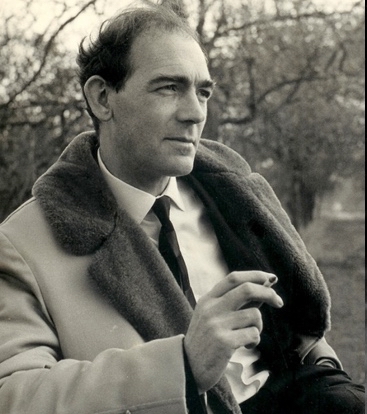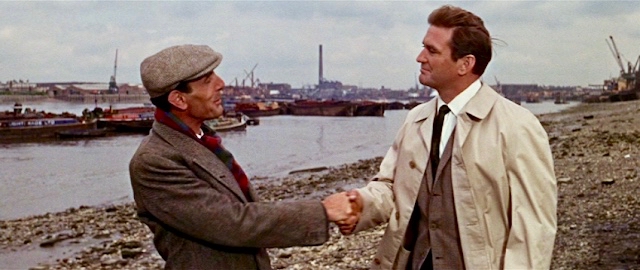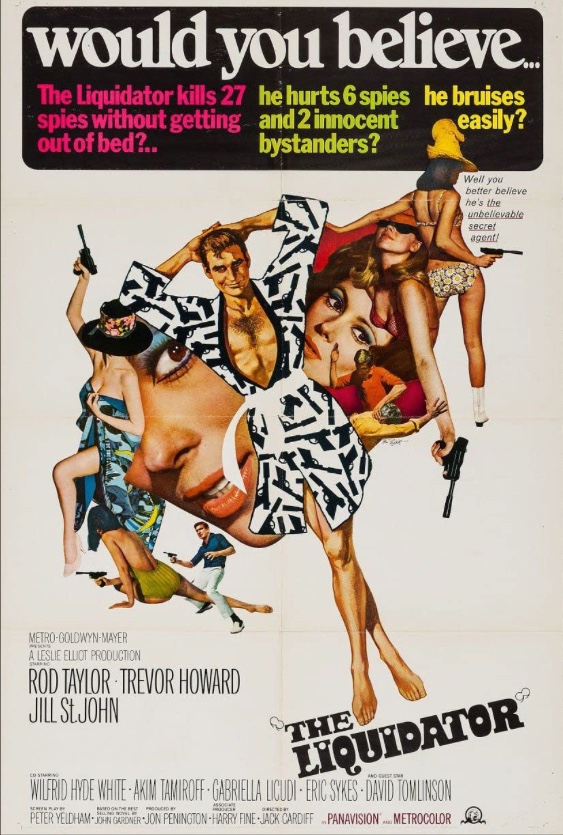By Ray Bennett
LONDON – John Gardner, who would have been 95 today, should rank with Eric Ambler, John le Carré, Len Deighton and Philip Kerr as a virtuoso of the serious British spy novel.
He is known best now for writing fourteen James Bond adventures starting with ‘Licence Renewed’ in 1981 plus novelisations of the films ‘Licence to Kill’ and ‘GoldenEye’. Before that, the Northumberland-born writer had terrific spy tales featuring Boysie Oaks and Herbie Kruger.
Len Deighton said Gardner was ‘A master storyteller at the height of his power’ when he published ‘The Secret Generations’ in 1985. It was first in a trilogy including ‘The Secret Houses’ and ‘The Secret Families’ that explored the history of two families immersed in the world of secret intelligence from World War I to the Eighties.
 ‘I get letters from Bond fanatics,’ Gardner told me in 1989, ‘who probably like to believe this is what it’s all about being a secret agent – dashing all over the world killing people. It’s not true, you know.’ He knew that spy stories needed spice, though. ‘I think the intelligence world is a fairly boring existence most of the time except on a cerebral plain,’ he said. ‘Those of us who write about it in fictional terms have to jazz it up a little bit.’
‘I get letters from Bond fanatics,’ Gardner told me in 1989, ‘who probably like to believe this is what it’s all about being a secret agent – dashing all over the world killing people. It’s not true, you know.’ He knew that spy stories needed spice, though. ‘I think the intelligence world is a fairly boring existence most of the time except on a cerebral plain,’ he said. ‘Those of us who write about it in fictional terms have to jazz it up a little bit.’
Only child of an Anglican minister and his wife, Gardner said his earliest memories were of long annual vacations in Europe in the Thirties. He and his parents got out of Paris the day before World War II was declared. Growing up in a small English country town, he became aware of eavesdropping and paranoia. ‘You’d walk down an unfamiliar street,’ he said, ‘and you’d see the lace curtains twitching as people watched.
An officer cadet at school, he volunteered for service when war broke out but he was too young. Instead, he staged magic shows for the Red Cross at U.S. military bases in Britain. Later, he served overseas in the Royal Marine Commandos and studied theology at Cambridge. He was ordained as a minister until he came to realise that he had made a mistake and, in his turmoil, he turned to booze. Working as a drama critic for the Stratford-upon-Avon Herald, he realised he was in real trouble and, on the path to recovery, he wrote his first book, ‘Spin the Bottle: The Autobiograpy of an Alcoholic’.
Gardner hadn’t had a drink in thirty years when I spoke to him and his novels were always a pleasure to read. If real and fictional spy cases made people in the west fearful, he argued, ‘The price of freedom is paranoia, as someone once said. If we’re going to live in a free world then we’ve got to be slightly paranoid.’
Glasnost and prestroika were in full flow in the Soviet Union but Gardner was not convinced. ‘I don’t believe Margaret Thatcher when she says the Cold War is over,’ he said. ‘I don’t believe it for a moment. Maybe it’s over as far as the British intelligence services are concerned but I don’t think it’s over for those gentlemen in Dzerzhinsky Square and in that large, peculiar building just off the Moscow ring road. I think they’re hard at it.’
Gardner wrote the Bond stories at the request of the Ian Fleming estate but one of his own characters might have been just as popular in movies. ‘The Liquidator’, his first novel, was a smart and funny spoof about a reluctant secret agent named Boysie Oakes. Mistakenly thought to be a ruthless killer but actually a coward who hates guns, he hires a real assassin to bump off people in order to keep the rewards coming. Gardner wrote seven Boysie books but only the first was made into a film starring Rod Taylor as Boysie, Trevor Howard as his control and comic Eric Sykes as the real killer.
‘It was supposed to have been a three-picture deal and that’s why I liked it,’ Sykes told me. ‘The idea was that in the second one Trevor Howard found out about Taylor hiring me for the killings and in the third one he decided he didn’t need Taylor and simply used me. Unfortunately, the backer ran out of money, or something, and the first film was held up in litigation for over a year. By the time it was released, the spy boom was over and it had missed its time. The deal on the other pictures fell through.’
Sykes remained one of Britain’s most treasured comedians and Gardner wrote many more novels including a fine series featuring British secret agent Herbie Kruger based in Germany. They include a terrific yarn he had in mind for a long time, ‘Maestro’, about a celebrated orchestral conductor’s secret life as a spy. Gardner kept writing until his death at the age of 80 in 2007. He told me he kept a plaque on his desk that read, ‘Old age and treachery will overcome youth and skill every time.’


